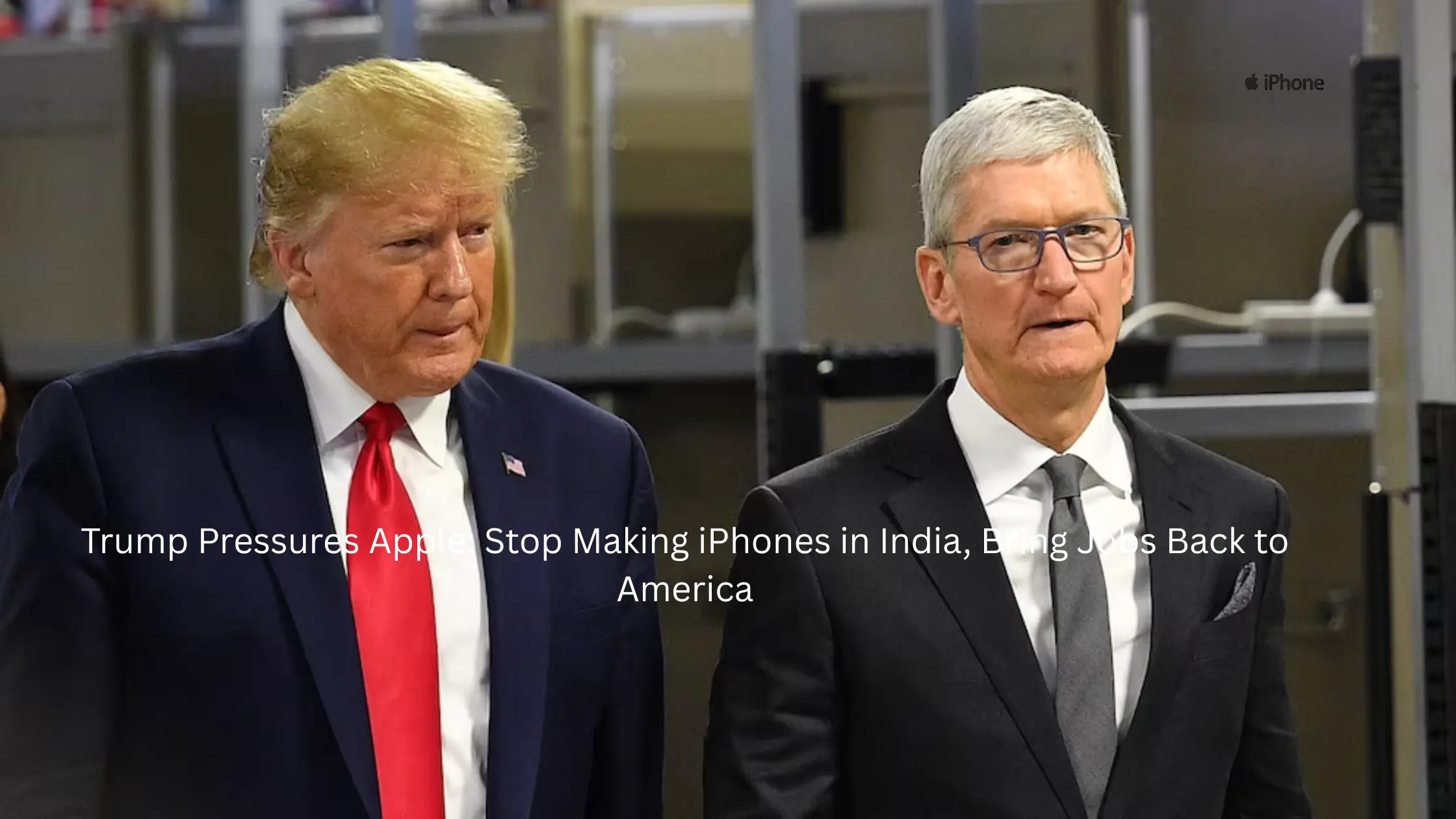Trump Pressures Apple: Stop Making iPhones in India, Bring Jobs Back to America
In a recent public statement, U.S. President Donald Trump reignited a long-standing debate by urging Apple Inc. to stop making iPhones in India and bring manufacturing jobs back to the United States. The comments come at a time when Apple’s India iPhone plans are expanding rapidly, positioning India as a critical node in its global supply chain.
“I had a little problem with Tim Cook. I want Apple to make iPhones in the U.S., not in India,” Trump said, referring to Apple CEO Tim Cook during a campaign speech.
Apple’s Growing Manufacturing Presence in India
Apple has been diversifying its manufacturing operations, shifting more production away from China and into India. The move aligns with India’s “Make in India” initiative, which offers tax benefits and local incentives to foreign manufacturers.
Key Developments:
- iPhone 15 and earlier models now assembled in India.
- Major Apple suppliers like Foxconn and Pegatron have expanded operations in Indian tech hubs.
- Apple opened its first retail stores in India in 2023, showing growing market interest.
Trump’s Argument: Make iPhones in the U.S.
Trump’s comments signal renewed pressure on large U.S. corporations to reinvest in domestic manufacturing. His stance echoes his 2016 campaign promises, where he urged tech companies to boost U.S. job creation.
Why Trump Wants iPhones Made in the U.S.:
- Job creation in American manufacturing hubs
- National security concerns tied to foreign production
- Economic stimulus through domestic investment
While his tone remains assertive, Apple has made no official comment in response to the latest remarks.
Is U.S.-Based iPhone Manufacturing Feasible?
Analysts remain cautious about the idea of mass iPhone production in the United States. Apple’s supply chain relies on a complex, cost-sensitive network that’s optimized in Asia.
Major Challenges:
- High U.S. labor costs
- Lack of large-scale infrastructure for electronics assembly
- Delays and increased costs for logistics and components
Potential Solutions:
- Limited-scale automation in U.S. factories
- Government tax breaks or subsidies
- Hybrid manufacturing models (e.g., assembly in U.S., components sourced globally)
Tech Industry Response to the Trump vs Apple Debate
The Trump vs Apple tension reflects a broader challenge facing U.S. tech firms—balancing political pressures with operational efficiency. While bringing some manufacturing to the U.S. could generate goodwill, full-scale production shifts are unlikely in the near term.
“Apple will continue to prioritize efficiency and innovation while navigating political landscapes,” said a tech industry analyst.







